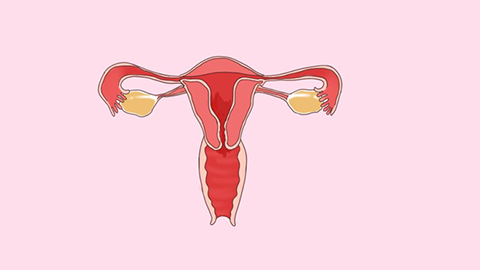What causes uncontrollable abnormal uterine bleeding?
Generally, uncontrollable abnormal uterine bleeding may be caused by factors such as hormonal fluctuations, excessive mental stress, endometritis, uterine fibroids, or adenomyosis. It is recommended to seek timely medical attention to identify the underlying cause and receive appropriate treatment under a doctor's guidance. Detailed explanations are as follows:

1. Hormonal fluctuations: In adolescent or perimenopausal women, ovarian function is unstable, leading to imbalances in estrogen and progesterone secretion. This causes irregular shedding of the endometrium and prolonged bleeding. Hormonal regulation and bleeding control can be achieved by following a doctor's advice to use medications such as conjugated estrogen tablets, progesterone soft capsules, or dydrogesterone tablets.
2. Excessive mental stress: Prolonged anxiety or tension can disrupt endocrine regulation, causing continuous uterine bleeding. It is important to adjust one's mental state promptly and relieve stress through activities like exercise or talking to someone. If necessary, follow medical advice to use hemostatic medications such as tranexamic acid tablets, vitamin K4 tablets, or adrenochrome tablets.
3. Endometritis: Bacterial infection can cause inflammation of the endometrium. Inflammatory stimulation leads to endometrial congestion and necrosis, resulting in persistent bleeding, often accompanied by symptoms such as abdominal pain and fever. Patients may follow medical advice to use antibiotics such as cefixime dispersible tablets, metronidazole tablets, or levofloxacin hydrochloride capsules to control the infection, along with hemostatic treatment.
4. Uterine fibroids: Fibroids growing into the uterine cavity can impair uterine contraction, causing prolonged bleeding, possibly accompanied by increased menstrual flow and prolonged menstruation. For smaller fibroids, follow a doctor's instructions to use medications such as mifepristone tablets, leuprolide acetate microspheres for injection, or Guizhi Fuling capsules to reduce the fibroid size and control bleeding. Larger fibroids may require hysteroscopic myomectomy to remove the lesion and stop the bleeding.
5. Adenomyosis: When endometrial tissue invades the uterine muscle layer, it impairs uterine contractions and causes heavy bleeding, often accompanied by severe dysmenorrhea. Patients may follow medical advice to use medications such as norethisterone capsules, danazol capsules, or ibuprofen sustained-release capsules to relieve symptoms. In cases of severe bleeding, endometrial ablation may be required to reduce the source of bleeding.
In daily life, ensure adequate rest and avoid strenuous exercise and fatigue to prevent worsening of bleeding. Maintain external genital hygiene, change sanitary products frequently, and prevent infections. Consume iron-rich foods such as lean meat and animal liver to prevent anemia.




